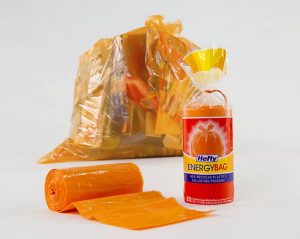

Clarissa Morawski
Single-use packaging is easy to spot. A short walk along a beach, anywhere in the world, will reveal the consequences of our throwaway culture as each tide brings in a fresh layer of debris, most of it single-use plastics.

Credit: Christopher PB/Shutterstock
Facing falling customer demand, an end user of recycled PET will lay off 100 employees at its North Carolina factory.
 A Canadian organization with a focus on marine debris is building a global effort to facilitate collection of plastics from impoverished countries and connect that material with end users.
A Canadian organization with a focus on marine debris is building a global effort to facilitate collection of plastics from impoverished countries and connect that material with end users.

Roche Harbor on San Juan Island in Washington.
Municipal programs in the Pacific Northwest continue to feel the impacts of China’s import restrictions, and multiple local programs are halting acceptance of plastics and other materials in response.
 Anti-incineration activists are criticizing an industry program that diverts traditionally non-recycled plastics away from landfill and into energy-recovery facilities. In response, project backer Dow Chemical Co. has defended the program’s utility.
Anti-incineration activists are criticizing an industry program that diverts traditionally non-recycled plastics away from landfill and into energy-recovery facilities. In response, project backer Dow Chemical Co. has defended the program’s utility.

Nina Bellucci Butler speaks at the Resource Recycling Conference.
U.S. and Canadian end users could consume more of the recovered plastics generated domestically if prices and specifications meet their needs. But a handful of converging market trends are standing in the way of significant growth.
 Indonesia considers following its fee on plastic bags with one on plastic beverage containers, and South African pickers could be hurt by a transition to extended producer responsibility for packaging.
Indonesia considers following its fee on plastic bags with one on plastic beverage containers, and South African pickers could be hurt by a transition to extended producer responsibility for packaging.
A Connecticut bill sits in uncharted territory when it comes to regulating plastic bags: The legislation ensures they’re recyclable and include recycled content, but it does not ban them.
 A government auditor in British Columbia has released a report on the Canadian province’s EPR (extended producer responsibility) program for printed paper and plastic packaging. Overall, the auditor is pleased with the program but does identify areas for improvement.
A government auditor in British Columbia has released a report on the Canadian province’s EPR (extended producer responsibility) program for printed paper and plastic packaging. Overall, the auditor is pleased with the program but does identify areas for improvement.
